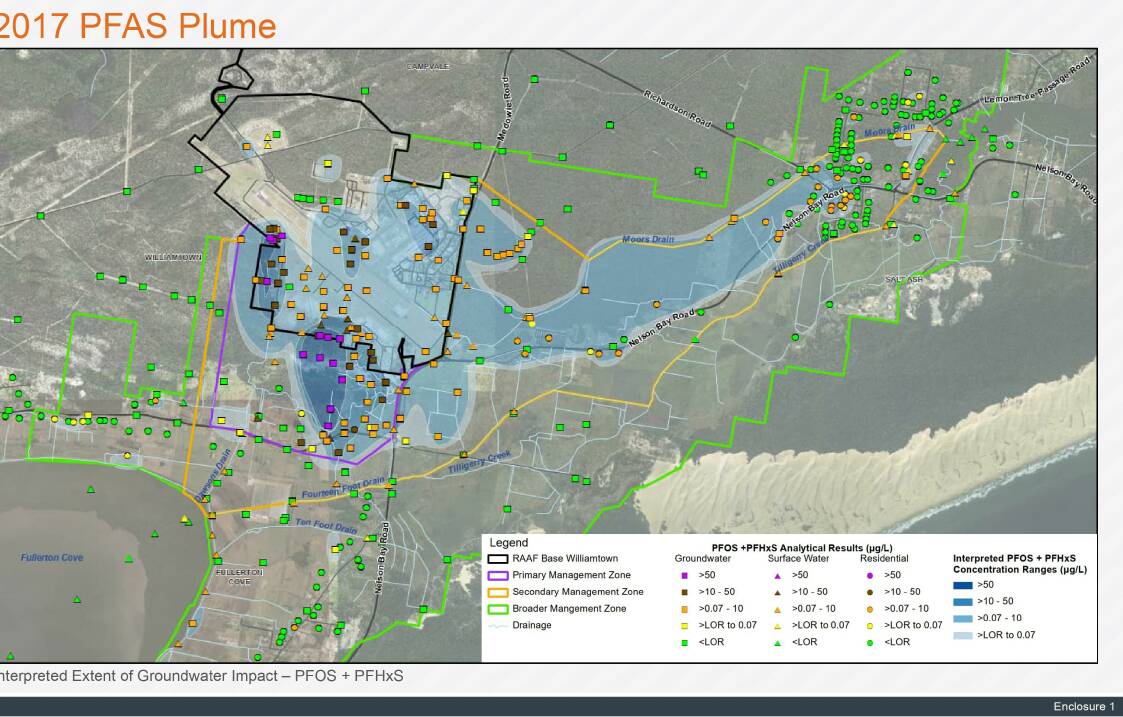
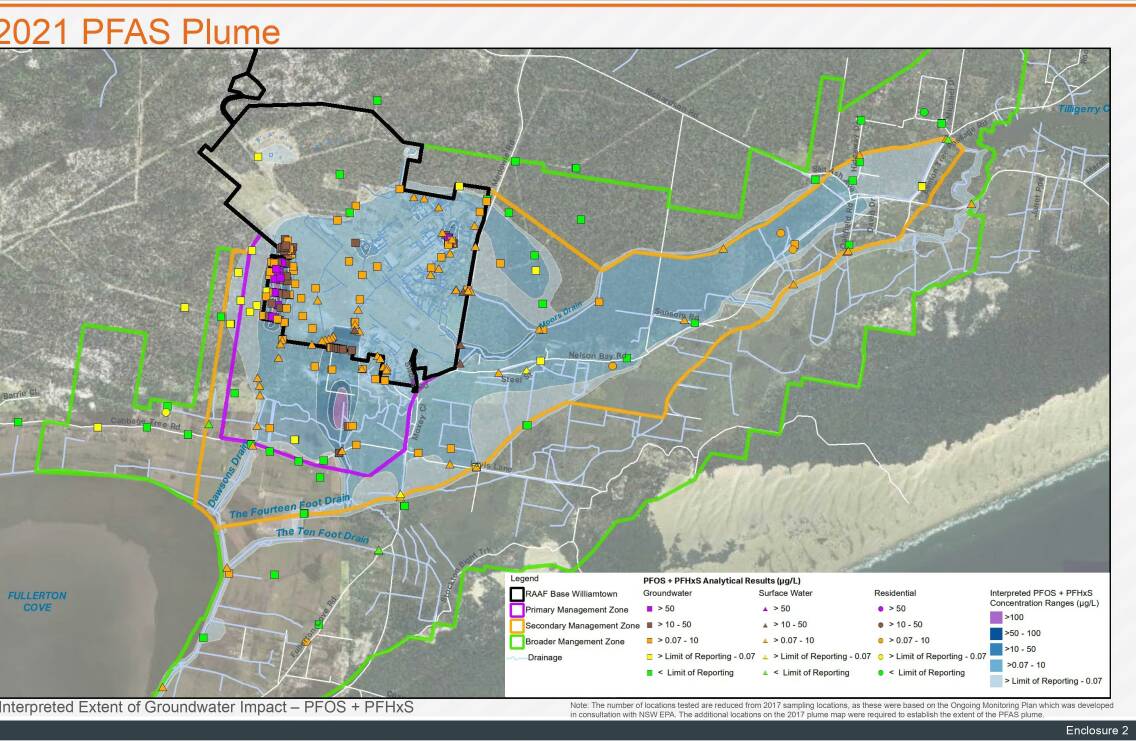
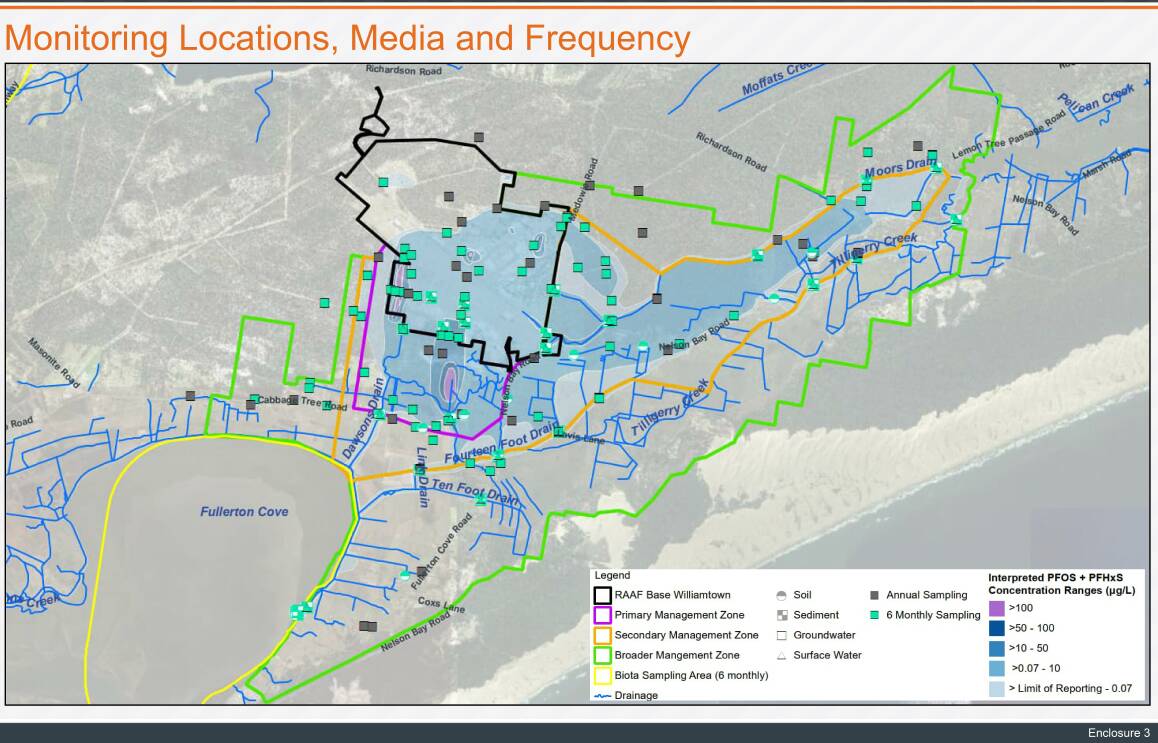
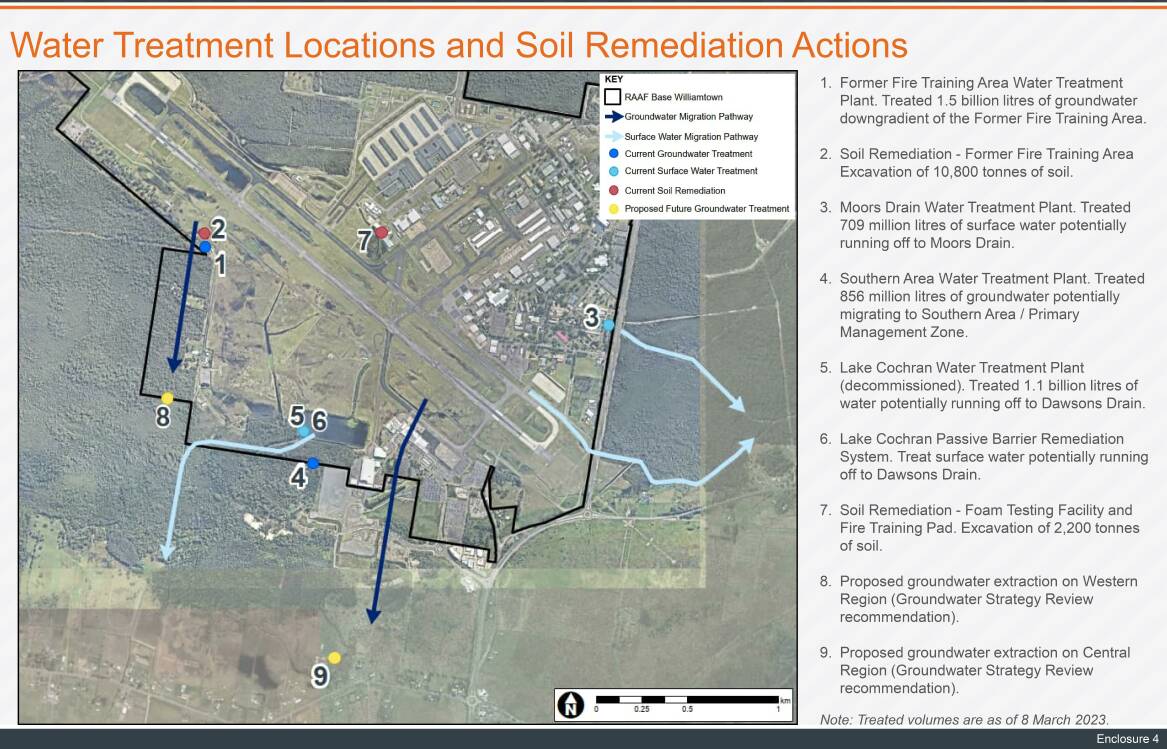
New contamination maps for the Williamtown Red Zone show the intensity of perfluoroalkyl and polyfluoroalkyl substance contamination at the RAAF base has fallen significantly over recent years.
While PFAS is still polluting the base's ground water, a recent analysis by the Department of Defence shows levels much lower than previously reported.
The Department of Defence has spent more than $100 million in recent years remediating PFAS hotspots, which were created by the extensive use of firefighting chemicals.
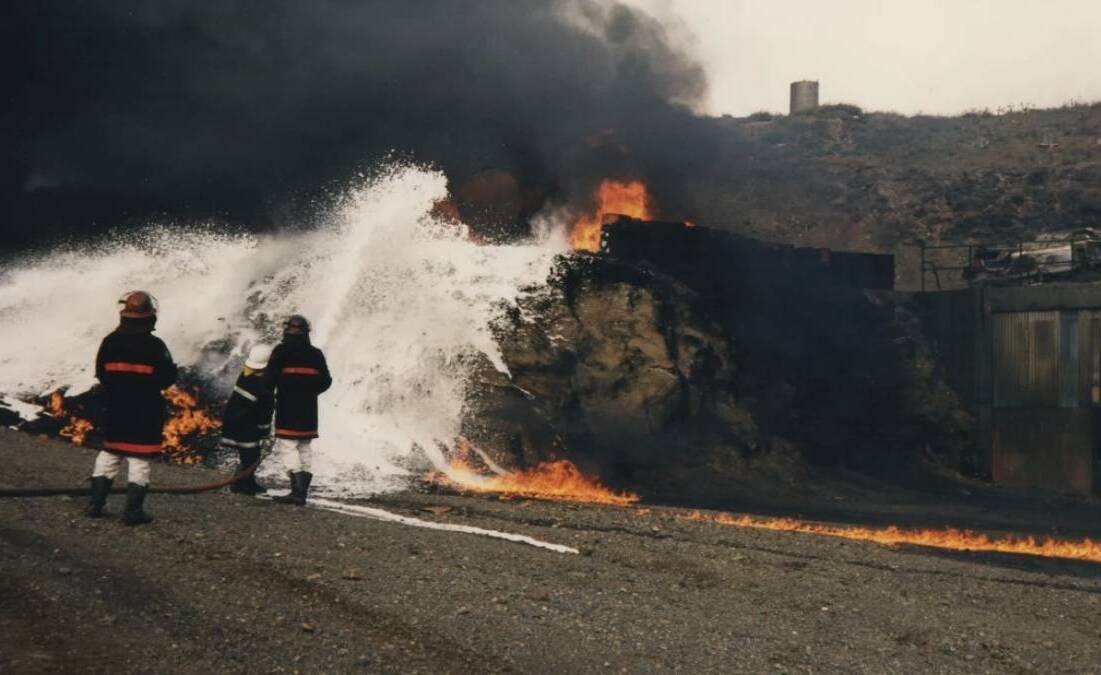
A March 2023 groundwater analysis by Defence shows the contamination plume is moving away from the base in a southerly direction.
Cabbage Tree Road resident Jenny Robinson said she was not convinced the situation was improving.
"The plume is moving but it's not getting any smaller. I'm sure they are pleased that it's moving away from the base but it's still part of the environment," she said.
Elsewhere, Fullerton Cove resident Lindsay Clout has called for the suburb to be removed from the Red Zone, an area indicating contaminated land in the suburbs around the Williamtown air base.
While Fullerton Cove was included in the original zone, several years of testing have consistently shown that PFAS is not present in the groundwater.
"I have had groundwater tests since 2018 and, to date, they have been negative," he said.
"Therefore, I'm asking the question: 'why am I in a contaminated zone'?"
State and federal ministers will meet in Sydney on Friday to discuss a coordinated approach to the management of PFAS in NSW.

The reinstatement of blood testing and the possibility of property buy-backs are two issues that Assistant Defence Minister Matt Thistlethwaite undertook to investigate on behalf of residents when he visited the Red Zone last year.
A recent co-signed letter to residents from Mr Thistlethwaite and Paterson MP Meryl Swanson acknowledged residents' desire to have blood testing reintroduced. But it added that the Commonwealth Department of Health had advised that there was little value to be gained from the program.
"Community members have expressed interest in additional PFAS blood testing. The Commonwealth Department of Health has advised that blood tests are not recommended as they cannot determine whether any medical condition is attributable to exposure to PFAS, and have no current value in informing clinical management," the letter said.
Mr Thistlethwaite last year apologised to the Williamtown red zone residents for the treatment they experienced at the hands of previous governments.
He conceded there was not a one size fits solution all to an issue as complicated as PFAS contamination.
"We are going to have to come up with some flexible alternatives for people. That's going to involve not only the Commonwealth but state and local governments as well," he said.
IN THE NEWS:
'Lucky to be alive': JD the dog shot and left to die in cruel attack
Stockton sand restoration work edge closer
Larrie's takeaway brings the fun to Beach Hotel
How Knights skipper Kalyn Ponga stayed positive despite the mounting pressure
To see more stories and read today's paper download the Newcastle Herald news app here.







